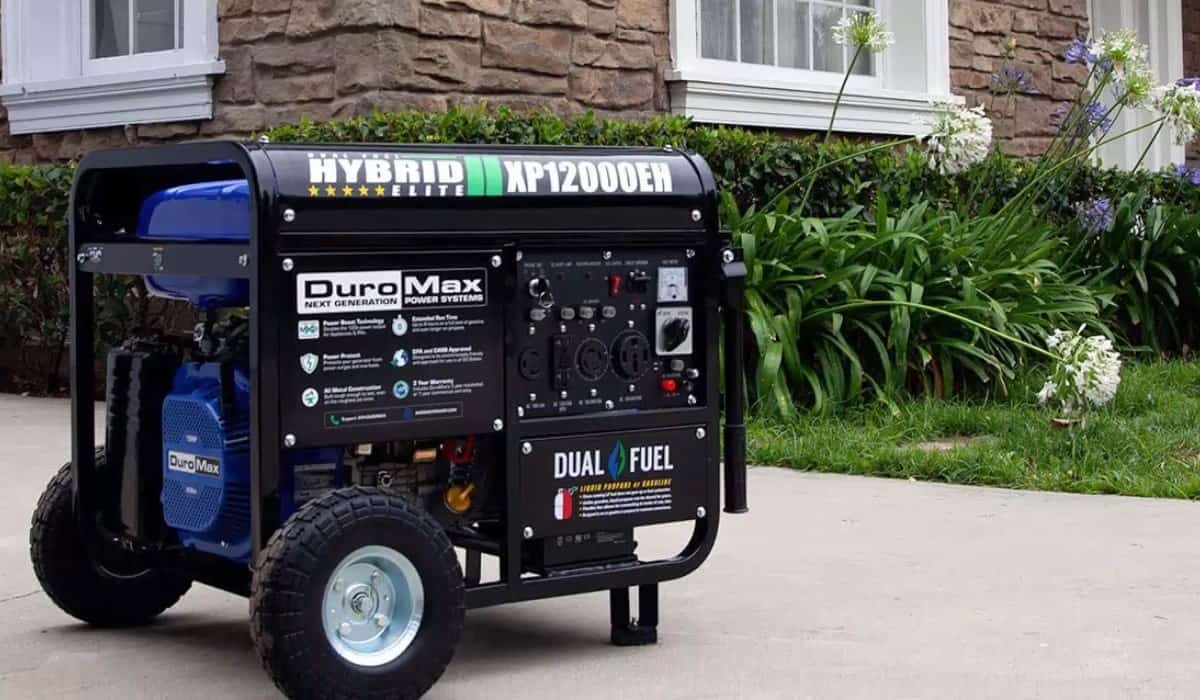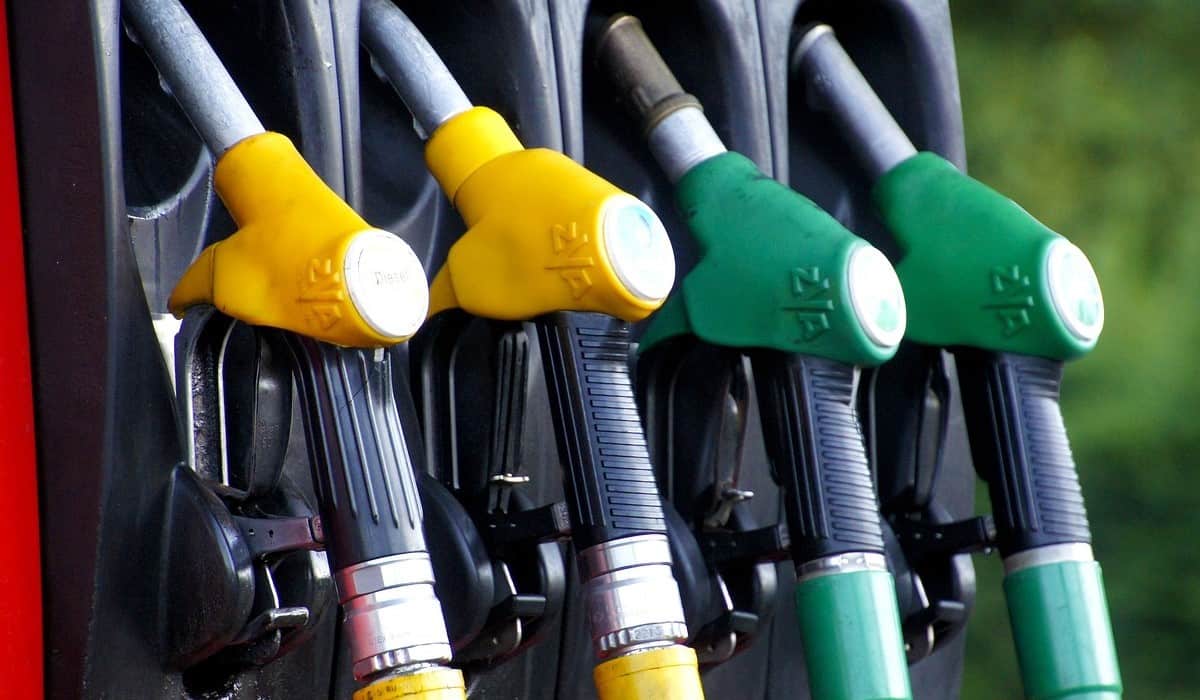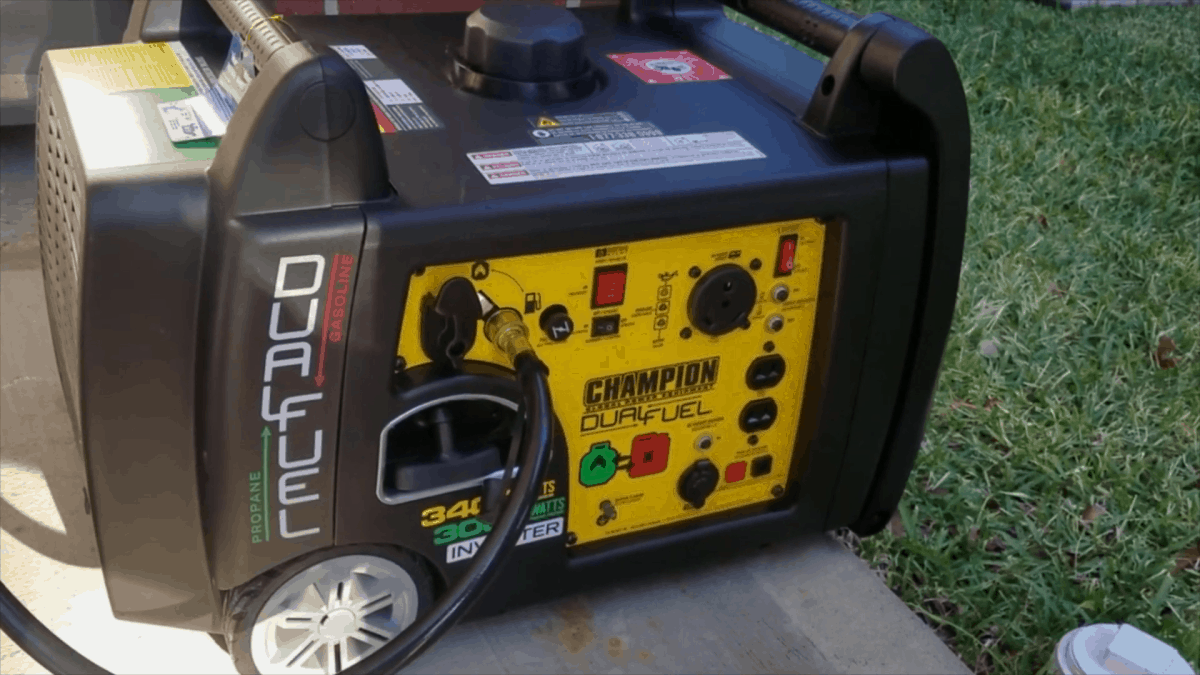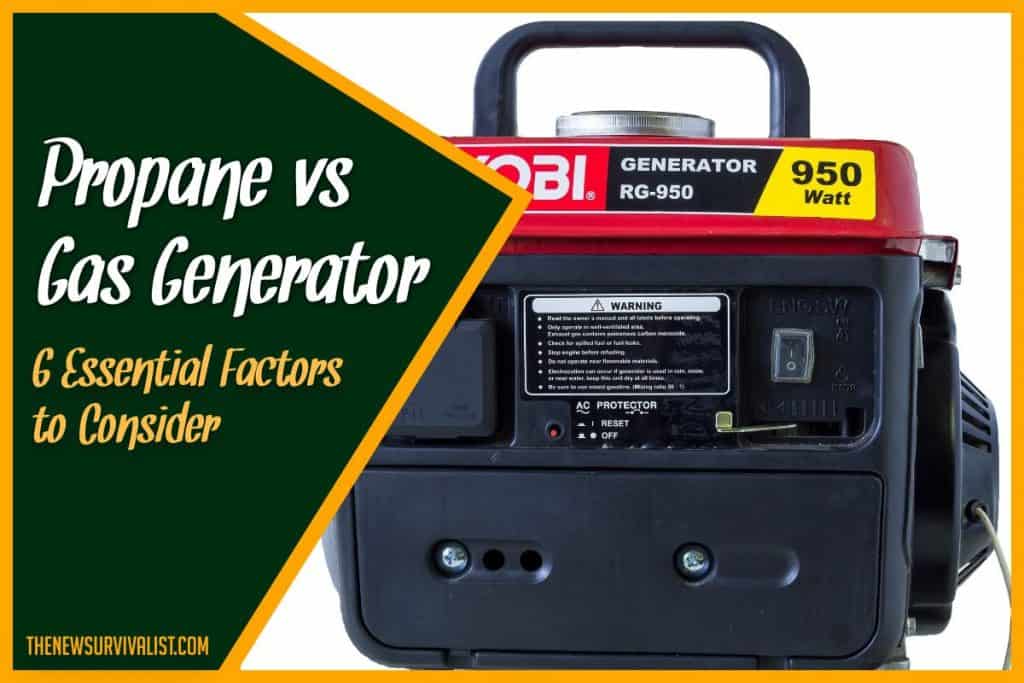Electricity has become an integral part of people’s lives. Preppers need it to power supply freezers and charge essential gadgets. For these reasons, an alternative source of electricity is a must in case the grid collapses when SHTF. Before investing in a backup generator, you should learn as much as you can about them.
The propane and gas-powered generators are two common generators that are often used as a backup power supply at homes. When choosing which one is appropriate for you, there are several factors that should be considered.
- Fuel Type
- Efficiency
- Generator Lifetime
- Maintenance
- Noise
- Cold Start
What is a Generator

A generator is a machine that converts one form of energy into another. In the case of a fuel-powered generator, the mechanical force produced by an internal combustion engine is transformed into electricity. Various types of fuel are used by generators. These can be gasoline, diesel, propane, and natural gas.
Propane vs. Gas Generator (Factors)
-
Fuel Type

Each fuel has its advantages and disadvantages that need to be weighed when choosing a type of generator. Both gasoline and propane are stored in liquid form. Gasoline is stored uncompressed in gasoline safe containers. Propane on the other hand is stored in pressurized tanks (Liquefied Petroleum Gas aka LPG, LP tank) but quickly turns to gas when released.
a. Availability of Fuel Supply
The availability of supply is the first thing to consider when choosing a generator. Gasoline can be easily bought from gas stations because they store it in massive underground tanks. Propane on the other hand is not as available because the tanks are filled in a refilling plant outside the city skirts and need to be transported back into the city.
Despite numerous sources claiming that gas station pumps do not work during a power outage, these pumps can be manually operated to pump gasoline. In an emergency setting, the cover of the pump can be taken apart to reveal the internal mechanism that can be hand-cranked or suctioned to extract fuel.
b. Shelf-Life and Storage Safety
The next thing to consider when choosing a fuel type is its shelf-life and storage safety. Gasoline is the most available in stores, but storing it in large quantities is dangerous. Safety regulations suggest that it is safer to store it in containers not exceeding 5 gallons. Additionally, it degrades fast and needs stabilizers for longer storage.
Gasoline lasts for 3 to 6 months without stabilizers, and up to 2 years with stabilizers added. Furthermore, due to its high volatility and extreme flammability, it’s best to store it in a detached storage 50ft away from any source of heat, spark, and flame.
On the other hand, propane tanks can last up to 10 years if stored in a cool and dry environment. It is best stored in a well-ventilated area, away from the elements. It will also help in case of a leak because propane readily dissipates into the atmosphere, which avoids the risk of explosion often seen in the accumulation of propane gas in an enclosed space.
-
Efficiency
The efficiency will affect the cost to operate the generator. That is, how long you can run it per gallon of fuel. According to the US Department of Energy (2021), a gallon of gasoline can convert its volume into 97 to 100% of energy, while propane can only produce up to 73% of energy per gallon compared to gas.
A 5kW unit of gasoline-powered generator will consume 18 gallons of fuel in a day (0.75 gallons per hour). On the other hand, a 5kW unit of propane generator will consume 20.64 gallons per day (0.86 gallons per hour). The difference may not be much when using a smaller capacity generator.
However, the larger the generator is, the bigger this difference becomes, and the more efficiently the gasoline generator performs. A Champion 7500watt (7.5kW) Dual Generator will run for 8 hours at half load (3750watt consumption) on gasoline, compared to just under 6 hours at half load when using propane as the fuel source.
-
Generator Lifetime
The lifetime is the estimated number of hours a generator can last. It’s not measured in years since the hour of use has more impact than the overall age of the unit. In general, a 1-10 kW capacity generator that is powered by both propane and gasoline is estimated to last for 250-1000 hrs. Although, this will be affected by the running condition and the cooling system of the generator.
There is anecdotal evidence that gasoline generators last longer than propane ones. It is a questionable claim since, in theory, propane generators would last longer due to the cleaner burn they provide, which will prevent too much buildup of carbon residues in the engine.
-
Maintenance

Since generators are like engines, they also have oil and filters that need to be changed and cleaned.
Due to the lower and cleaner emission of the propane generator, it takes a longer run time before needing oil and filter change. Gasoline generators leave carbon deposits in the engine and the exhaust which requires a more frequent oil change and cleaning.
Additionally, gasoline leaves residues in the fuel lines and system parts which will also need to be cleaned. Propane has none of these problems, however, the supply line will need to be checked for leaks from time to time.
As a rule, oil and filter change is done annually if the generator is not used frequently. If a generator is used for at least 50 hours, it requires oil and filter change immediately.
-
Noise
Propane generators are quieter than gasoline. A 7kW Generac propane generator will typically produce 68db at 23 feet. In comparison, a 6.5kW Gillette gasoline generator produces 77db at 23 feet. For context, the sound of a conversation between 2 people is at 60-70db, while 77db is as loud as a vacuum cleaner.
-
Cold Start
In very cold weather, a gasoline generator will take a longer time to start. Gasoline becomes viscous and gel-like the lower the temperature becomes. It can lead to the blockage of supply lines and engine parts. Propane does not have this problem and will flow reliably even at lower temperatures.
The Best Choice
Dual Generators

In recent years, dual generators have become more common, and more efficient. Dual generators are hybrid engines that can run on either gasoline or propane. Due to this, it’s the best type of generator to have for emergency power.
However, with its combined fuel source, some benefits of a single fuel generator are lost. It runs as loud as a gasoline generator even if propane is the fuel used. On top of this, it will also require frequent maintenance as long as its tank is filled with gasoline. Despite these drawbacks, the dual generators can be considered the best type of generator to have when SHTF.

